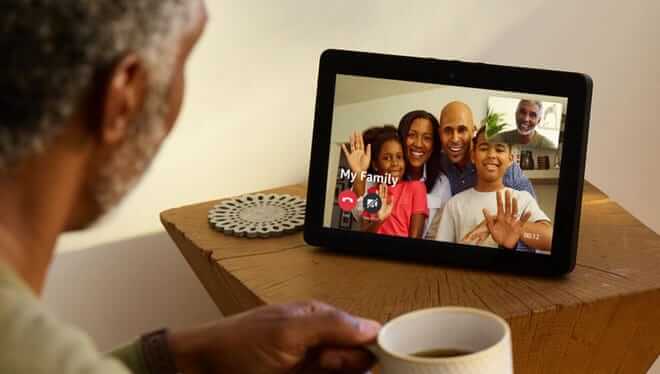Socializing with others used to be an easy task. Social gatherings were planned regularly. Whether it was a family BBQ, meeting a friend for dinner, or a friend stopping by to visit, socializing with others was a simple, unthinkable, reoccurring event. As social distancing becomes the new normal during the Covid-19 pandemic, people are unfortunately experiencing the side effects that come along with it, one critical side effect being isolation. For the 28 percent of Americans who live alone, this has meant little to no human contact for months. According to AARP, 43 percent of adults age 60 or older in the U.S. reported feeling lonely.
Tips to cope with isolation and loneliness:
-
- Plan weekly, reoccurring, virtual hangouts. Take advantage of virtual meetings with video conferencing platforms like Zoom or Skype. For example, Tag every Wednesday at 6 pm for a virtual happy hour with your friends/family. Planning ahead gives you something to look forward to for the week. Having group conversations also increase brain stimulation, releases dopamine, and can make you feel like you feel less alone, resulting in a happier
 you.
you. - Utilize hands-free social hang out devices. To keep in contact with your friends/family, hands-free devices such as an Amazon Echo Show, or a Facebook portal are a great way to keep in touch, especially with an older demographic, These devices require minimal end-user effort, and make it easy for anyone to check in with your loved ones.
- Exercise. Regular exercise can help support a healthy immune system. Spending time moving is critical for your mental health and can act as an effective stress reliever. Working out from home is made possible via YouTube workouts, or many social media influencers are offering free LIVE workout classes through their Facebook/Instagram profiles. Make a goal to move your body for at least 30 minutes a day!
- Plan weekly, reoccurring, virtual hangouts. Take advantage of virtual meetings with video conferencing platforms like Zoom or Skype. For example, Tag every Wednesday at 6 pm for a virtual happy hour with your friends/family. Planning ahead gives you something to look forward to for the week. Having group conversations also increase brain stimulation, releases dopamine, and can make you feel like you feel less alone, resulting in a happier
- Eat well. You may be familiar with the phrase “you are what you eat.” Odds are, If you are fueling yourself with nutritious, whole foods, you will feel better than if you were to fuel yourself with greasy, fast food. Cooking homemade meals can be made fun by trying new recipes. Websites such as “https://tasty.co/feature/quarantine-cooking” highlight easy, quick recipes to cook for yourself. This website also separates the recipes into categories such as, low carb, kid-friendly, keto, beginner-friendly, and also indulging comfort foods such as creamy chicken Alfredo pasta, because…balance ;). Choose 3 new recipes to try per week.
- Get organized. Create physical space, for mental space. Clearing the space has many mental health benefits and will make you feel more productive. The more organized your home is, the more organized your thoughts will be. Start by giving lose items a home. If you have space, reorganize your furniture to give yourself more space. The space will make it feels like cluttered and cramped and will give you more room to do things like home workouts or crafts. Shows on Netflix such as “Get Organized with The Home Edit” or “Tidying Up with Marie Kondo” give a great outline and tips to decluttering and getting organized. Caution: the shows are addicting to watch!
I hope these tips have been useful for you and you try implementing some into your isolation routine.
Until next time,

 you.
you.